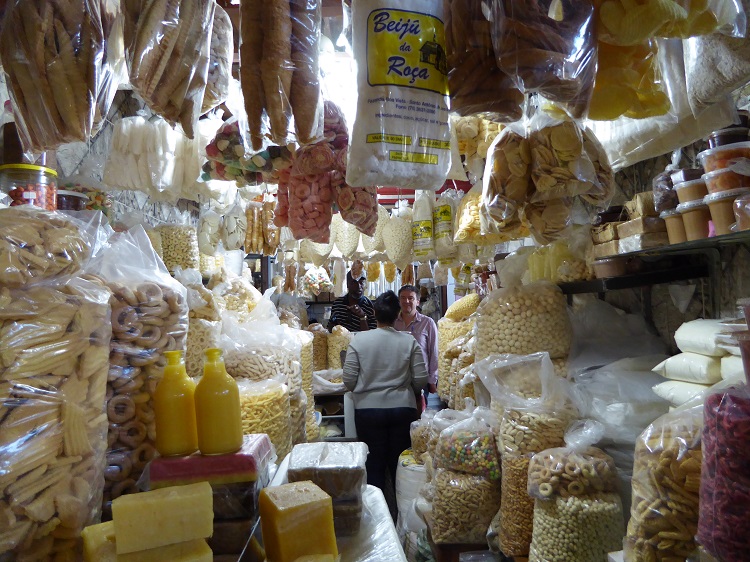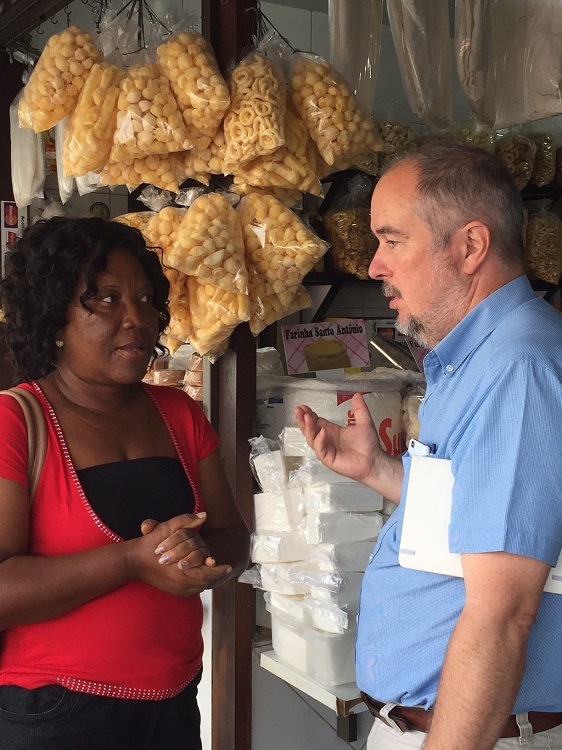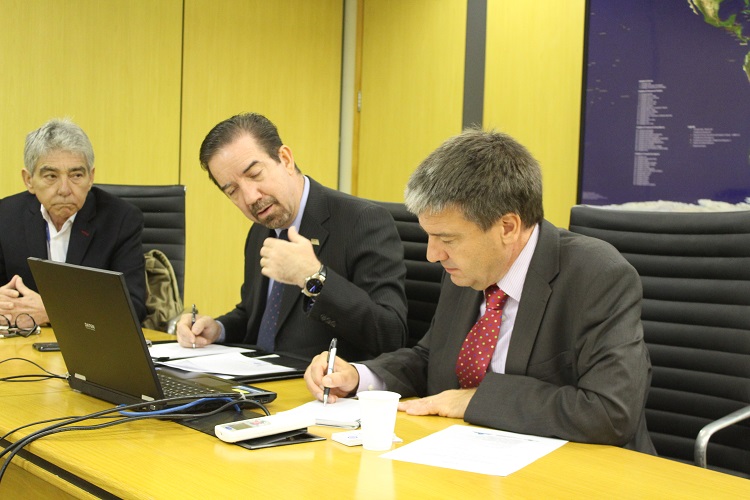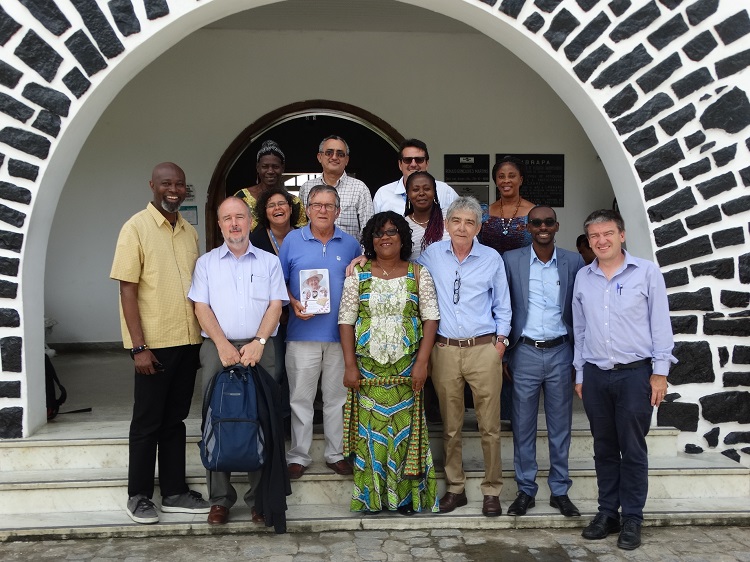
Cassava, a root crop that is hugely important for food security across Africa, is believed to have originated in Brazil where it is known as ‘mandioca’. Over centuries, Brazilians have developed a complex culture and cuisine around its use with many novel foods and processes that are unknown in other countries.
 As part of a grant from IFAD, the Rome-based International Fund for Agricultural Development, Profs Bennett and Westby have been leading a ‘Brazilian Cassava Learning Journey’ to investigate these foods with participants from across West and Central Africa.
As part of a grant from IFAD, the Rome-based International Fund for Agricultural Development, Profs Bennett and Westby have been leading a ‘Brazilian Cassava Learning Journey’ to investigate these foods with participants from across West and Central Africa.
“Brazilian-style cassava-based foods could easily be adopted in Africa as small scale food businesses generating income and a source of demand for farmers,” said Prof Bennett. “In Brazil they make a huge range of different flours from cassava which are then incorporated in baked products and different traditional dishes.”
“We have had our eyes opened to the possibilities of cassava processing for income generation,” said IFAD’s Ghana Country Officer, Theophilus Larbi, a participant in the Learning Journey.
 At the conclusion of the Brazil Cassava Learning Journey, Prof Westby signed a collaboration agreement between Embrapa and NRI to start to transfer some of these technologies.
At the conclusion of the Brazil Cassava Learning Journey, Prof Westby signed a collaboration agreement between Embrapa and NRI to start to transfer some of these technologies.
“We hope that this collaboration on cassava will be the beginning of a long-term partnership between NRI and Embrapa, a world leader in many fields of agricultural science.”
“This partnership on cassava sends out a clear message about our organisations’ commitment to intensify science-based agricultural innovation,” said Embrapa’s President, Dr Maurício Antônio Lopes.
- Brazil produces 26.4 million million tonnes of fresh cassava annually and is the 4th biggest cassava producer in the world.
- Embrapa is the state-funded national agricultural research body in Brazil with a staff of over 2,400 scientists.
- The Natural Resources Institute (NRI) is a research and teaching body with nearly 100 staff whose aim is to address global food security and sustainability issues with a focus on poverty reduction. NRI is a part of the University of Greenwich.
- Prof. Ben Bennett is Deputy Director of NRI and Leads the IFAD funded grant ‘Improving the Processing of Cassava in West and Central Africa (IPCI)’.
- Prof. Andrew Westby is Director of NRI and a world-renowned expert on cassava processing.


